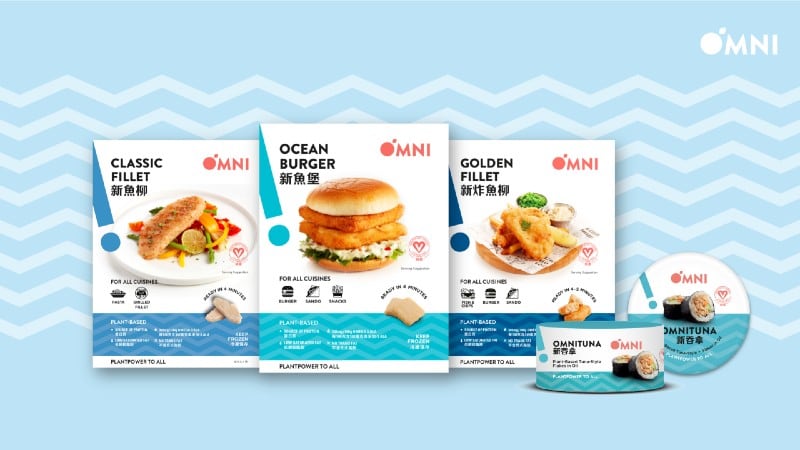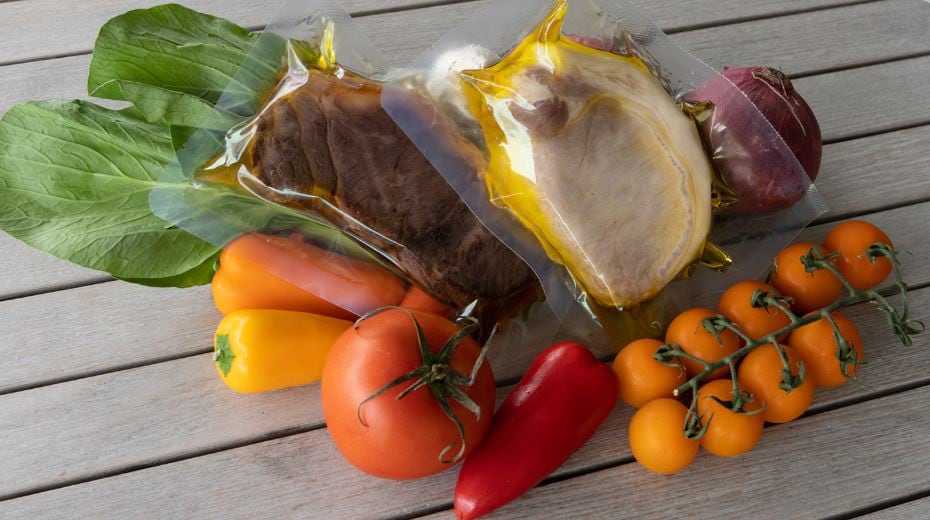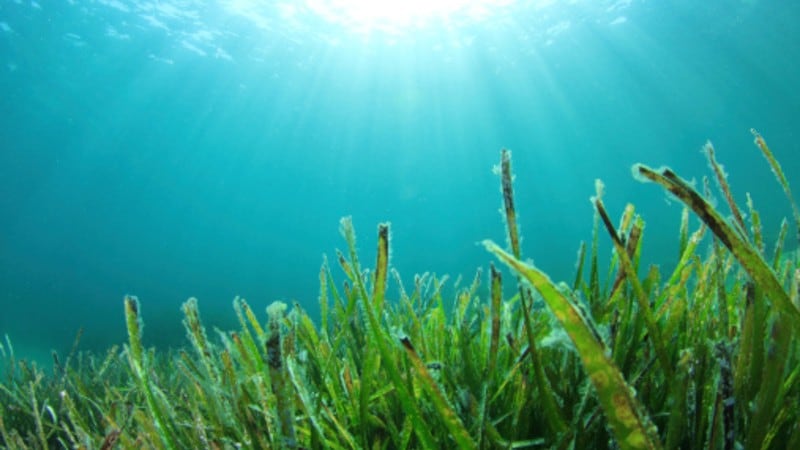OmniFoods has made no secret of its focus on the plant-based sector in Asia, and Founder and CEO David Yeung emphasized that with this new seafood range, the versatility of the products to be used with various different types of cuisines was a key area of focus.
“Our name Omni is meant to be just that – to be designed for all types of cuisines, [and] this has been very important in this range. We have launched six different products in order to fit all cuisines,” Yeung said yesterday at the OmniSeafood launch event.
“[In particular], the Omni Classic Fillet which is the world’s first plain and unbreaded plant-based fish fillet has been designed to work with [classical] Chinese food applications such as Szechuan spicy water-cooked fish (水煮鱼) and pickled vegetable fish (酸菜鱼) [where the fish is generally boiled].
“Basically, the whole idea for this range is to be versatile, to have options for not just Western cuisine but also for all types of Asian cuisines from Oriental to Thai, to Korean, to Japanese and so on.”
This will differ from most plant-based seafood options available on the market today which mostly focus on breaded fillets for western-style cooking. OmniSeafood has those too (Omni Golden Fillet for fish and chips, Ocean Burger for burgers) but has focused on developing more unusual options such as the Classic Fillet, OmniSalmon, OmniTuna and Crab Cake.
“OmniTuna is going to be the first Omni product that is ambient, so there is no need for it to be frozen and thus there are a lot of applications this can be used for, from salad to sushi rolls and various Japanese dishes,” Yeung added.
“All the OmniSeafood products will be made using our proprietary blend of rice, non-GMO soy and pea, and these also have Omega-3 Alpha-linolenic acid (ALA) from canola oil, an essential fatty acid that the human body cannot make on its own. As compared to conventional fish, OmniSeafood products are also mercury-free, have no added antibiotics, are non-GMA, and vegan-friendly.”
“We’re not looking for everyone in the world to go vegan or vegetarian or to give up meat and seafood forever – the key here is to make changes one meal at a time, and together, Sea Change can happen.”
OmniSeafood will first be debuting in Hong Kong at OmniFoods’ sister retail and foodservice outlet Green Common, followed by Green Common stores in Shanghai and Singapore as well as other restaurants in Hong Kong in July 2021. OmniSalmon will be making a later appearance compared to the rest, in end-2021/early-2022.
Focus on Asia
OmniFoods’ Asian focus means that it has had to make product taste and cost considerations top priorities, whether with plant-based meats or with the new plant-based seafoods.
“Asian people have sharp taste buds and are very picky. We have to ensure that the food we produce is localised to reach out to the masses,” Yeung told us previously.
“OmniFoods does our R&D in Canada, but we have a production centre in Thailand and soon-to-be China, within Asia. [This helps with costs as] the logistics and labor costs in Thailand is going to be lower, so that also means that it is savings that we can transfer to end consumers.”
He has also highlighted that the launch of OmniSeafood is particularly important to Asia as this region is the biggest consumer of seafood worldwide, taking up some 73% of consumption globally.
“In Hong Kong in particular, our per capita fish consumption (70.75kg) is some 3.5 times higher than that of the global average of around 20kg per year – we are the third highest worldwide, behind only Iceland and Maldives [where fish is a main staple food sue to natural conditions].
“Other Asian countries consuming fish above the global average include Malaysia (62.62kg), Japan (45.49kg), China (38.17kg), Taiwan (29.69kg), Thailand (29.17kg) and [so on]. Plant-based seafood has been largely overlooked so far at just 0.8% of all plant-based protein consumption in the US and even less elsewhere, [so] it was only natural for us to look at the next big protein that has been missed out - seafood.”





